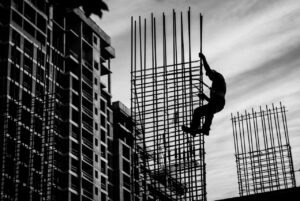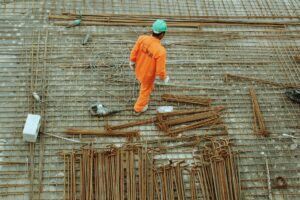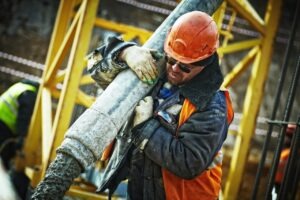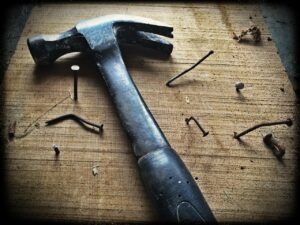Homeowners and building owners have a general responsibility to keep their properties free of hazards so as to prevent harm from befalling invitees and licensees. If your property contains a dangerous defect, and if a guest sustains an injury because of it, you may face legal liability for associated damages.
That said, many maintenance tasks require skills, tools and knowledge that most property owners do not possess themselves. One task that requires considerable specialized knowledge and equipment is roofing.
At some point during your period of home or building ownership, you may discover that you need to hire roofers to repair or replace a damaged roof. In hiring roofers, you acknowledge that you know a hazard exists and, in the process, establish one essential element of a possible premises liability claim against you. If a roofer does fall off your roof, or if he or she acquires injuries while on the job, you may wonder if your acknowledgment, combined with other factors, will make you legally liable for the resulting damages. Unfortunately, the answer depends on your relationship with the contractor and the circumstances surrounding and leading up to the claim.
How Your Role in a Roofing Project Affects Liability
Generally speaking, home and building owners cannot assume liability for the actions of contractors who work on their structures. However, the law provides several exceptions to this generalization. One exception is if you assume a managerial role in the roofing project.
If you take on the role of construction manager, you essentially become the contractors’ employer, or the “Controlling Contractor.” As the Controlling Contractor, you become legally liable for injuries a contractor sustains while working on your project.
Another exception that may make you liable for contractors’ injuries is if your own negligence somehow contributed to the incident. There are several ways you may be “negligent” in terms of a roofing project, which is why it is imperative that you take all necessary measures to reduce your exposure as much as possible.
How To Protect Yourself Against Liability for Roofers’ Injuries
Accidents happen, and there is no way that you can reduce the risk of a roofer falling off your roof entirely. However, there are several steps you can take to reduce your exposure for a lawsuit.
Carefully Vet All Contractors
First and foremost, put contractors through a rigorous vetting process before hiring one. Not only do you want to make sure that the person or team you hire has the experience to tackle a job of your size and scope but also, you want to ensure that each party has appropriate licensure, certification and insurance. What this means is that even if your friendly, all-around-handy-person neighbor offers to repair your roof as soon as he completes his, say no thank you — unless, of course, he can produce the requisite paperwork. If a contractor hesitates to produce documentation, steer clear.
Get Everything in Writing
Once you hire a contractor, have him or her sign a contract that releases you from any and all liability should something go awry. This liability waiver can prove to be a huge saving grace in the event of a construction accident. The document should address all safety issues both on your property and on your roof that you cannot correct so that it is clear, from a third-party’s perspective, that the contractor knew what he or she was getting into before accepting the job.
Identify All Potential and Existing Hazards
It is unfair to expect a contractor to release you from all liability if he or she has no idea what he or she is getting into. When roofers arrive to your home to provide estimates, reveal all potential safety issues of which you are aware. Understandably, you cannot know about every roof defect, as it is the roofer’s job to assess the health of your roof and provide you with a detailed report. However, if you know that there is a considerable leak above the master bedroom, or that the screened-in porch’s roof is on its last legs, inform the contractor of these issues. Armed with the right information, a roofer can take all the precautions necessary to protect him or herself and his or her workers from harm.
Make Repairs To the Best of Your Ability
There will be several issues of which you are aware but that you cannot tackle yourself — hence, your need to hire a roofer. However, if you can make a fix, do so. This is the case even if a repair has nothing to do with your roof. For example, say you require your contractors to set up their equipment in the backyard. If there are any tripping hazards or safety issues either at any point between the front and back of your house or in the backyard, and if a contractor sustains an injury because of one, you may assume liability for failing to fix a fixable issue.
Require Contractors To Abide By OSHA’s Rules of Safety
Following through with this particular tip is tricky, as you need roofing contractors to adhere to OSHA’s roofing safety procedures for your and their sake but also, you do not want to appear as if you are trying to manage the project. Before hiring a roofer, make it clear that you expect him or her and his or her team to either know or familiarize themselves with OSHA’s regulations and to abide by them. As with every other detail of the project, clarify your expectations in the contract.
Do Not Interrupt Contractors At Work
Though it may seem like a no-brainer, do not try to communicate — either verbally or through hand gestures — with workers on your roof. Doing so could up a roofer in a precarious position and at a heightened risk for falling.
Make Sure Contractors Use Their Own Tools
Finally, do not let contractors use any of your tools or equipment. Though lending tools when contractors are in a pinch may seem like the most kind and time-effective thing to do, it can put you at risk for a lawsuit. Do not lend equipment, should your equipment malfunction and cause an injury.
When To Hire a Roofing Accident Lawyer
Unfortunately, each of these tips are only helpful before the fact. If you hired a roofer and he or she fell off your roof, you may assume liability for part or all of the damages that arose from the incident. While your homeowner’s insurance may kick in to help you, it may not be enough to cover the likely exorbitant costs associated with the injury. To protect yourself in the likely event of a lawsuit, seek legal help right away.
If you are the accident victim, never assume that the law will work in your favor. Even if you did everything right and still fell from the roof, you will still need to prove that the homeowner acted negligently in some way. If you can prove that the home or building owner shares some level of fault, you can seek monetary recovery beyond what your insurance provides. However, proving negligence is unlikely to be easy. To protect your interests, and to improve your odds of securing the maximum amount of compensation, retain the help of a qualified construction accident lawyer. Contact Jason Stone Injury Lawyers to schedule your initial consultation. There is no obligation. Just information.
Not Trusting What You’re Being Told?
Better Phone Stone
800-577-5188
 START MY NO OBLIGATION CONSULTATION
START MY NO OBLIGATION CONSULTATION











